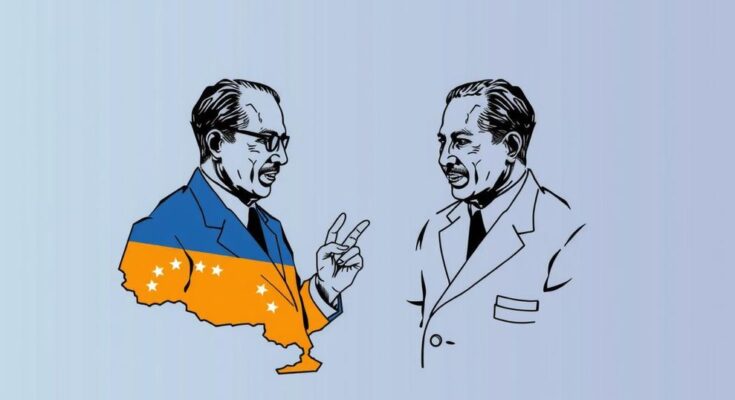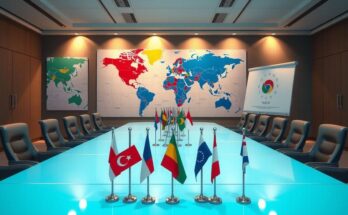The United States has sanctioned 21 allies of President Maduro for their involvement in post-election repression following July’s disputed presidential election. Among those sanctioned are high-ranking officials in Venezuela’s security and cabinet. The Biden administration recognized opposition leader Edmundo González as the legitimate president after he fled to Spain. The permanence of these sanctions remains uncertain as Maduro maintains influential power in the government.
The United States has recently enacted sanctions against 21 additional associates of Venezuelan President Nicolás Maduro, attributing their participation in the ongoing repression in response to the contentious presidential election held in July. Among those sanctioned by the Department of the Treasury are prominent security and cabinet-level officials, such as the head of the corrections agency and the director of an intelligence service. These individuals join the ranks of numerous sanctioned Venezuelans, including high-ranking judicial officials and government ministers.
Last week, the Biden administration formally recognized opposition candidate Edmundo González as the democratically elected President of Venezuela. In conjunction with the sanctions imposed on Wednesday, the U.S. also introduced visa restrictions against individuals accused of repressing Venezuelan citizens following the electoral process.
While Maduro has publicly declared himself the victor, his administration has yet to provide verifiable vote tallies to substantiate these claims. After the issuance of an arrest warrant tied to alleged electoral misconduct, González sought asylum in Spain in September, having previously represented various opposition factions. In September, the United States imposed sanctions on 16 additional allies of Maduro for their roles in electoral obstruction and human rights violations.
The future impact of these recent sanctions and visa restrictions remains uncertain as Maduro loyalists continue to wield considerable power within the Venezuelan government. Meanwhile, legislative discussions within Venezuela continue regarding a proposed bill that would characterize economic sanctions as crimes against humanity, potentially opening avenues for the prosecution of those supporting such measures.
The ongoing political turmoil in Venezuela has garnered international attention, particularly regarding the legitimacy of electoral processes. Nicolás Maduro’s government faces significant allegations of election fraud and human rights abuses, leading to increased scrutiny and sanctions from the United States and other nations. The recognition of opposition leader Edmundo González by the Biden administration further underscores the U.S. commitment to supporting democratic processes in Venezuela amidst governmental repression and disregard for electoral integrity.
In summary, the United States’ recent sanctions against Venezuelan officials highlight the international response to alleged human rights violations and electoral fraud in Venezuela. As the political landscape remains fraught with tension, the efficacy of these measures in influencing change remains to be seen. The recognition of Edmundo González as President by the U.S. signifies support for the opposition against Maduro’s administration, while internal responses to these sanctions continue to evolve within Venezuela’s legislative framework.
Original Source: www.wlrn.org




